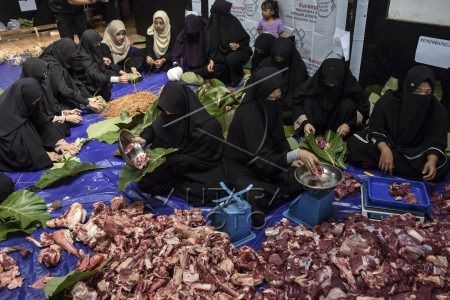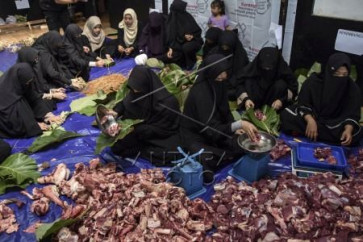Popular Reads
Top Results
Can't find what you're looking for?
View all search resultsPopular Reads
Top Results
Can't find what you're looking for?
View all search results‘Qurban’ as an instrument of self-control and human solidarity
Qurban teaches that sacrifice is not a loss but a spiritual and social investment for the common good.
Change text size
Gift Premium Articles
to Anyone
T
he act of qurban (sacrifice) is a significant religious practice in Islam, performed by Muslims worldwide every 10th of Dhu al-Hijjah, coinciding with Idul Adha. While commonly associated with slaughtering livestock like goats, cattle or camels, the meaning of qurban extends far beyond this ritual.
Theologically, qurban symbolizes drawing closer to Allah (Glorified and Exalted is He) through sacrifice, sincerity and mastering one's ego. It reflects not only individual piety but also embodies profound moral and social dimensions.
Historically, qurban traces back to the story of Prophet Abraham, who received a divine command to sacrifice his son, Ismail. The Quran, in Surah Ash-Saffat verses 102–107, narrates how Abraham conveyed this to Ismail, who responded with remarkable submission: "O my father, do what you are commanded. God willing, you will find me among the patient."
This story highlights that qurban stems not from blind obedience but is built upon dialogue, awareness and deep sincerity shared between two spiritually connected individuals.
Theologically, qurban represents complete submission to Allah's will and symbolizes renouncing worldly attachments. Thus, animal sacrifice is not merely a ritual but a symbol of “sacrificing the ego”, desires and destructive materialistic tendencies. This aligns with Sayyid Qutb's views in his tafsir (detailed interpretation and explanation of Quran), where he states that qurban is a form of soul training to submit to divine will and break free from worldly entanglements.
Given this theological perspective, the aim of qurban can be viewed from various dimensions. The distribution of qurban meat to the community, especially to the poor and needy, is a concrete expression of social solidarity in Islam.
According to Statistics Indonesia (BPS) data in 2023, the poor numbered 25.9 million, accounting for 9.57 percent of the total population. In this context, qurban can serve as an instrument, albeit with short-term effects, for social empowerment and reducing economic inequality.



















